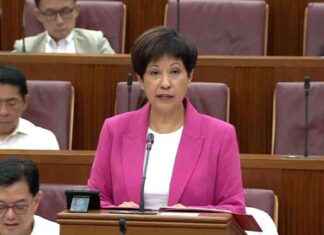Understanding the Importance of Healthy Boundaries in Parenting
In a world where parenting is scrutinized from all angles, the recent guidelines issued by the Ministry of Social and Family Development (MSF) on parental caregiving practices have sparked a flurry of mixed reactions among parents. The guidelines, intended for professionals working with at-risk families, outline boundaries that may seem like common sense to some but raise questions for others.
The Fine Line Between Guidance and Criticism
Parenting is a delicate dance of judgment and self-assessment. As a seasoned clinical psychologist, I have witnessed firsthand the struggles parents face in navigating the intricate web of societal expectations, personal beliefs, and psychological impacts of their upbringing. The issue at hand is not just about following rules but understanding the rationale behind them.
Many parents, driven by their own experiences or the desire to break free from past parenting practices, find themselves at a crossroads when it comes to setting boundaries. The notion of “common sense” varies across cultures and individual beliefs, making it essential to have open conversations about what constitutes acceptable parenting practices.
The Power of Healthy Boundaries in Child Development
Research consistently shows that children thrive in environments with clear, consistent boundaries. Boundaries act as the edges of a child’s sandbox, defining the safe space where they can explore, learn, and grow. By respecting a child’s autonomy and teaching them to listen to their inner voice, parents lay the foundation for healthy relationships, emotional management, and social interactions in adulthood.
The shift from obedience to understanding and collaboration is crucial in fostering a child’s independence and empathy. However, this transition can be challenging for parents who fear losing control or repeating the cycle of trauma they experienced in their own upbringing. Understanding the function behind behavior and approaching discipline with compassion and empathy are key elements in setting healthy boundaries.
Fostering a Safe and Nurturing Environment
Setting appropriate boundaries is not just about rules; it’s about modeling behavior and communication. Parents play a pivotal role in guiding their children through the complexities of life by maintaining consistency, fairness, and open dialogue. Whether it’s managing screen time or discussing sensitive topics like consent and propriety, parents must engage in meaningful conversations that prioritize understanding over judgment.
In the journey of parenting, self-awareness and reflection are essential tools for growth. By shifting the focus from behavior to its underlying function, parents can decode the messages behind their child’s actions and respond with empathy and understanding. Remember, children are still learning, and it’s our role as parents to create a safe space for them to explore, express, and grow.
As Dr. Shawn Ee, a seasoned clinical psychologist, aptly puts it, “Parenting is a journey of self-discovery and growth, where healthy boundaries serve as the compass for meaningful and balanced relationships between parents and children.” So, let’s embark on this journey together, armed with empathy, understanding, and a commitment to nurturing our children in a safe and loving environment.


























